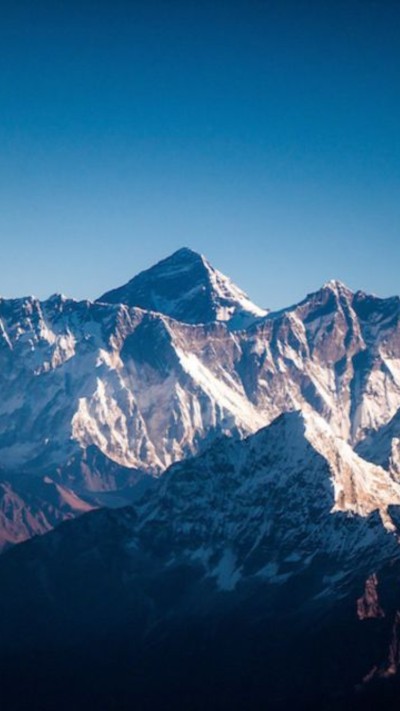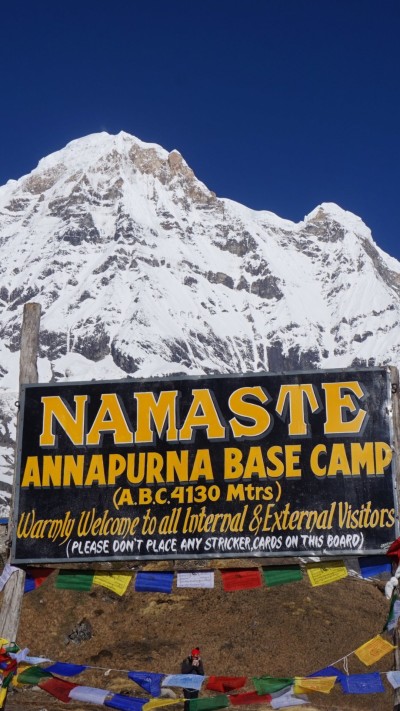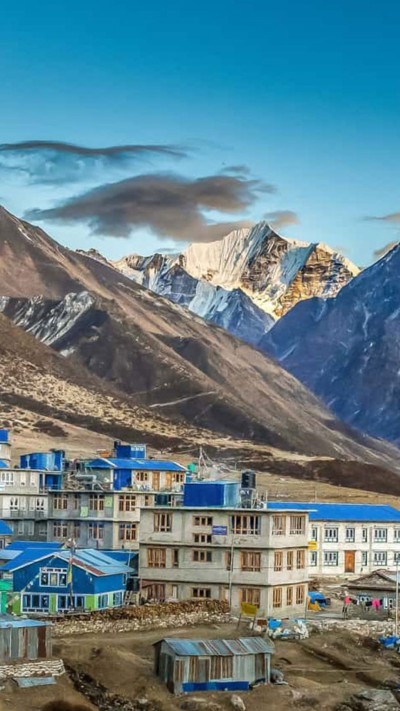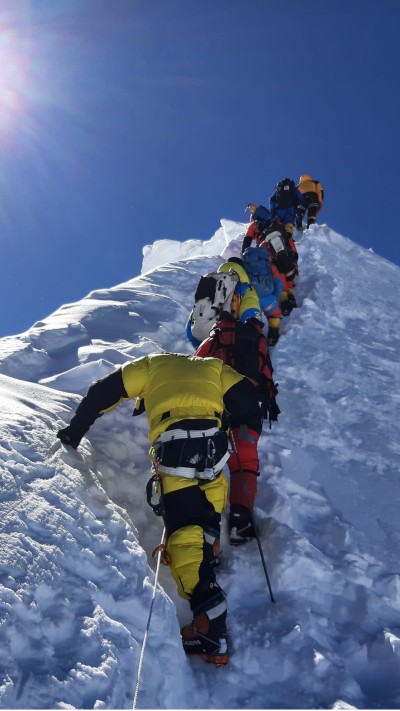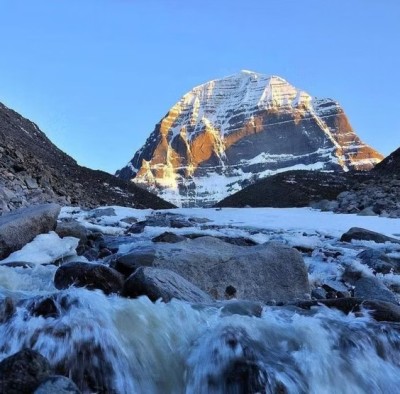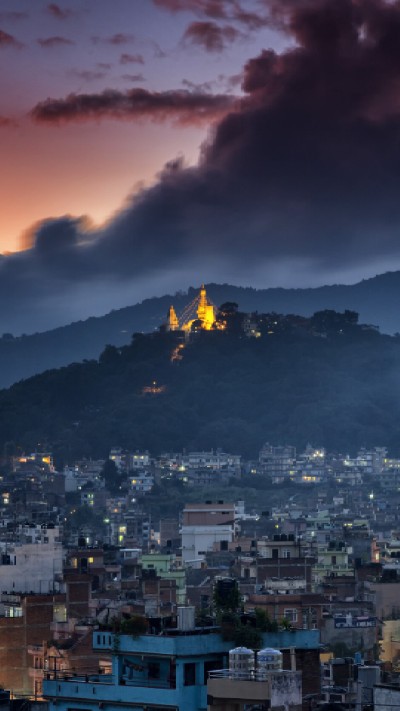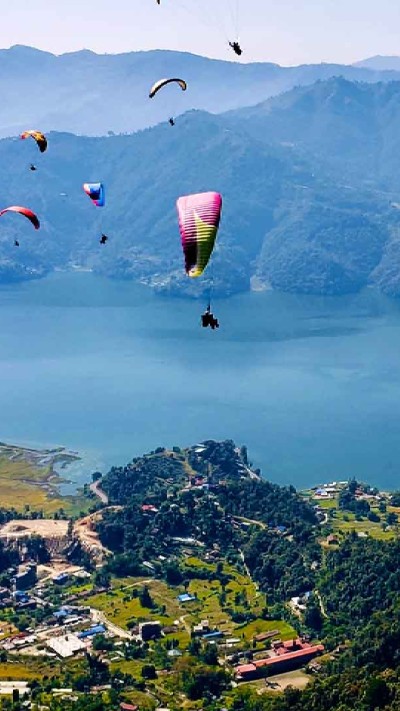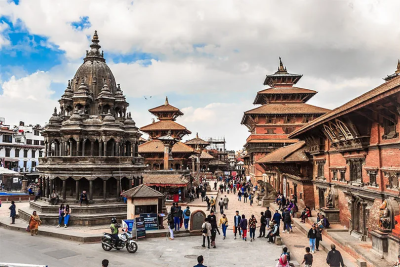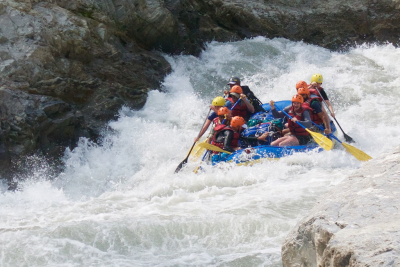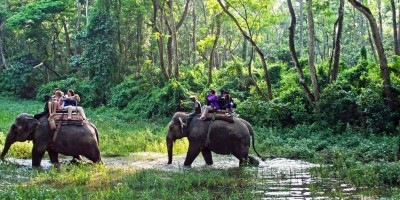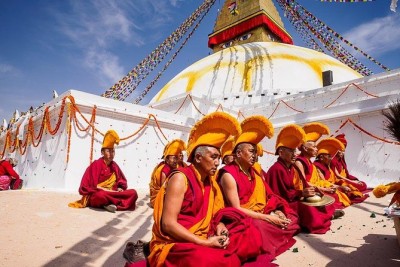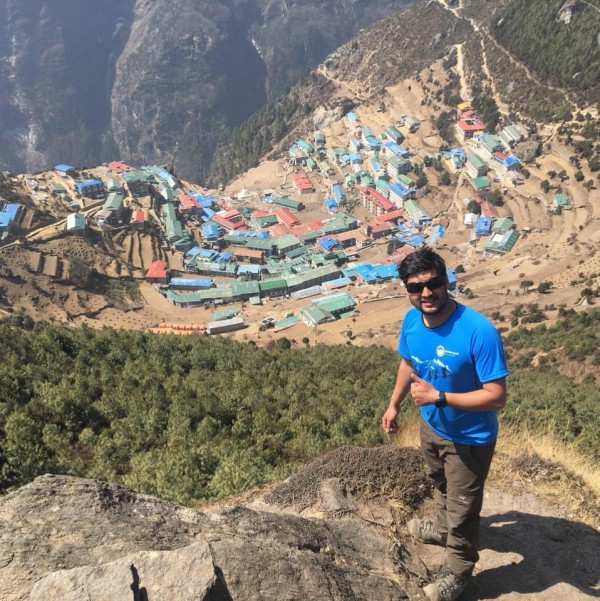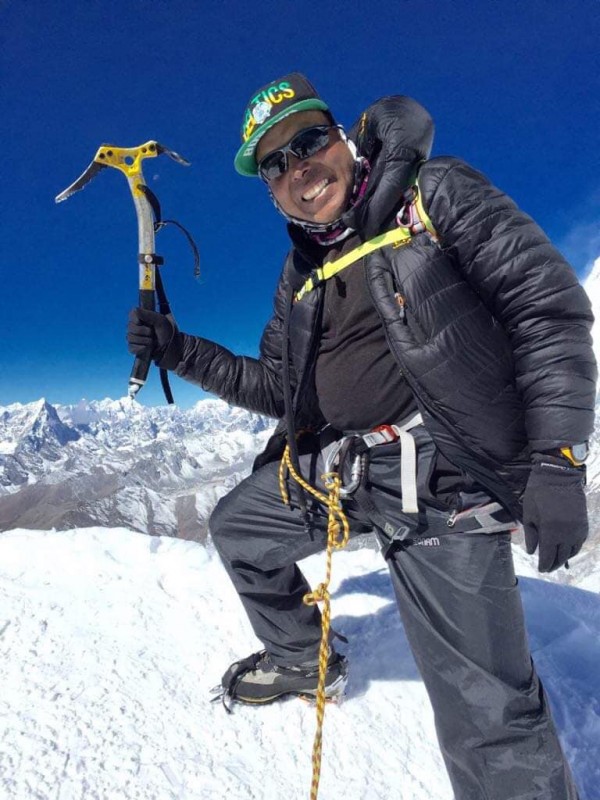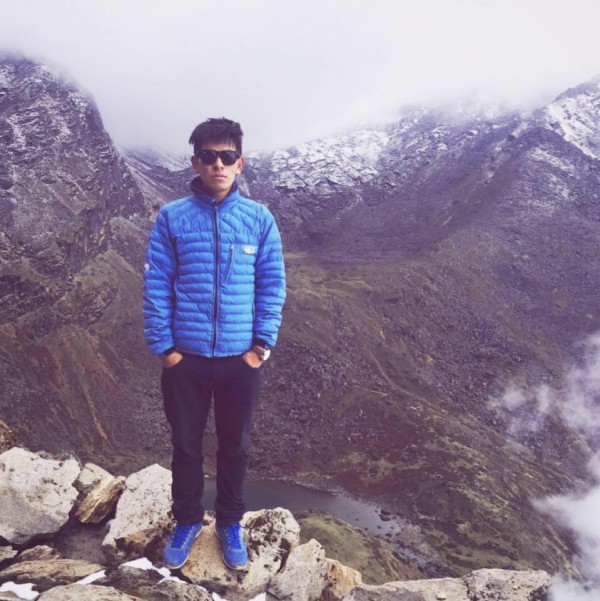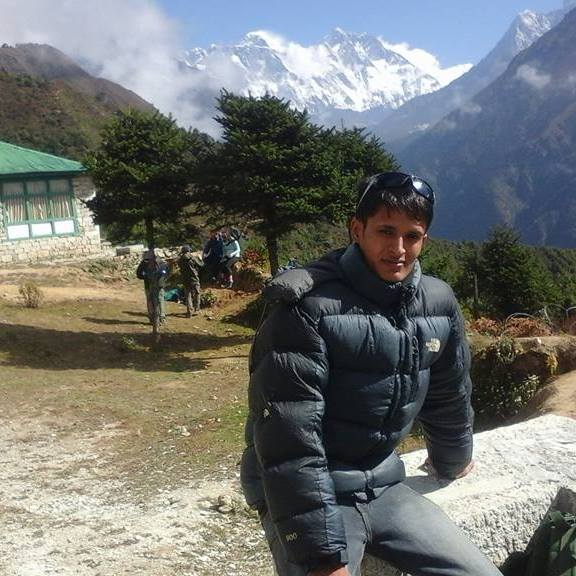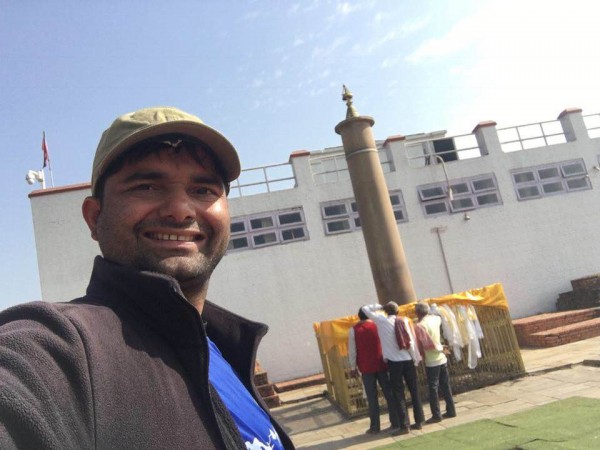YOGA TEACHERS TRAINING
Region
Spiritual Journey
Duration
22 Days
Min Group Size
1 people
Want to become a yoga instructor?
Our authentic, creative and rigorous Yoga Teacher Training is a curriculum that will train you for an outstanding yoga teaching career with the abilities that transcend your inventive limits. Not only will you gain knowledge, but you will also be able to experience the true potential of yoga in a personal way.
We're going to take you on a journey of both spiritual and scientific approaches to yoga where you can understand the new impetuous passion of your life. Our 200-hour Yoga Teacher Education is a rigorous program that will include both practical and theoretical exercises in order to create a better understanding of all facets of yoga. It is very easy to move forward even for the starters. You can nutritize your mind and stretch your body and senses and in the same way, you can teach other learners the same.
Our 200-Hour Yoga Teacher Training Nepal goals are to:
✔ Offer inspiring, educational, and authentic yoga teachings to you regardless of your level of practice.
✔Encourage you to deepen your love for yoga, and offer you the skills to get confident at teaching yoga safely with your students.
✔ Build a positive learning environment in which you and all other like-minded yogis will thrive, and create long-lasting friendships.
Eligibility to join the 200-hour Yoga Teacher Training Nepal Course
These 200 hours of Yoga Teacher Training Course are designed for everyone no matter their background, nationality, or religion. Be ready as this course will lighten your paths and open a gate of hope for a better life. The age of the student shouldn’t be less than 18 or more than 60.
Certification of 200-hour Yoga Teacher Training Nepal Course
For New Aspiring Yoga Teachers, a 200-hour certification can be a platform to learn ancient knowledge of health, harmony, and well-being on a worldwide level. This is one of the most serviceable minimum ethics set by an organization to instruct Yoga in recent times. Credit goes to Yoga Alliance for all the efforts made to bring an idea of regulation over literacy and tutoring Yoga by setting up the designations for Yoga Seminaries and Yoga professionals the world over. After successful completion of a 200 hrs, course from an RYS 200 Yoga School (Registered Yoga Academy at 200 hrs. level) with 200 hrs. For yoga Certification, participators are eligible to get registered with Yoga Alliance, USA for a designation of RYT 200 (Registered Yoga Schoolteacher at 200 hrs. position).
After successful completion of the 200-hour yoga teacher training in Nepal course, students will receive the 200-hour yoga teacher training certificate enabling them to register with Yoga Alliance or any other Yoga Federation in your country. This course will provide you with new insights into all areas of yogic practice and also present you with an opportunity to become a Registered Yoga Teacher (RYT 200)
Outline Itinerary ( 22 Days )
-
1
Daily Schedule
DAILY SCHEDULES
06:00 – 6:30 am: Wake up and Ushapan (Early Drinking water)
06:30 – 8:30 am: Jala Neti (Nasal Cleansing) and Herbal Tea
07:15 - 08:45 am: Hatha Yoga
08:30 - 10:30 am: Breakfast & Herbal Tea Break
10:00- 11:30 am: Yoga Philosophy
11:00-01:00 pm: Vegetarian Lunch and Herbal Tea
01:00-02:00 pm: Library / Self-study
03:30-05:30 pm: Yoga Asana Practical
05:30 - 06:00 pm: Herbal Tea
06:00 - 07:00 pm: Bhakti Yoga (Prayer/Chants), Spinal Asana/ Suryanamaskar; Yoga-Nidra, Mudra, Dhyana Yoga (Meditation)
07:00 - 07:30 pm: Dinner and Herbal Tea
07:30 - 08:30 pm: Bhakti Yoga (Prayer/Chants), Group Talks and Discussion ( 2 Times a Week )
08:30 pm: Evening walk, Vajrasana, Self-study & Practice
10:00 pm: Bed Time (Lights out)
Course Syllabus:
1. Techniques, Training and Practice: Total 100 Hours
- Minimum Contact Hours: 75 hours
- Minimum Contact Hours w/ Lead Trainer(s): 50 hours
- Prayer: Om chant, Mantra prayer and Chanting
- Jogging; Subtle exercise, Dynamic (warm up) exercise, Spinal exercise and Suryanamaskar (Traditional and integrated form both)
- Satkarma: Dhauti, Basti, Neti, Nauli, Tratak and Kapalbhati
- Asana (postures): Meditative postures, Relaxing Postures, Balancing Postures, Fitness maintaining postures, Inverted postures.
- Body Alignment in Yoga
- Yoga safety guidelines
- Mudra, Bandha and Pranayama (Breathing Ethics)
- Yoga nidra (Yogic Sleep) and Dhyana (Meditation)
- Guided Teaching Practice
2. Teaching Methodology: Total 25 Hours
- Minimum Contact Hours: 15 hours
- Minimum Contact Hours w/ Lead Trainer(s): 10 hours
- Communication skills such as group dynamics, time management, and the establishment of priorities and boundaries
- How to address the specific needs of individuals and special populations, to the degree possible in a group setting
- Principles of demonstration, observation, assisting and correcting
- Teaching styles and Qualities of a teacher
- The student learning process
- Business aspects of teaching yoga (including marketing and legal)
3. Anatomy and Physiology: Total 20 Hours
- Minimum Contact Hours: 10 hours
- Minimum Contact Hours w/ Lead Trainer(s): 0 hours
- Constituents of Human Body: Cells, Tissues, Organs, Terminologies;
- System of Protection and Movement of bones, joints, muscles, Flexibility, Efficiency, Body Alignment
- System of Intake of raw materials and the elimination e.g Digestive, Respiratory, Excretory
- Communication and Immune system-Cardiovascular, Nervous, Endocrine, Lymphatic:
- Spiritual anatomy and physiology: Pancha kosa, Chakras, Physical and spiritual Nadis, Kundalini power etc.
4. Yoga Philosophy, Lifestyle and Ethics for Yoga Teachers: Total 30 hours
- Minimum Contact Hours: 20 hours
- Minimum Contact Hours w/ Lead Trainer(s): 0 hours
- The brief study of yoga philosophies and traditional texts: Meaning, Definition and History of Yoga, Biography of some yogic Rishis such as Lord Shiva, Patanjali;
- Brief introduction of the Yoga Sutras, Hatha Pradipika and Gherand Samhita;
- Forms of yoga: Karma yoga, Bhakti yoga, Gyana yoga, Dhyana yoga, Mantra yoga, Hatha yoga, Kundalini Yoga, Ashtanga Yoga
- Yogic Lifestyle: Day Regimen, Night Regimen and Seasonal Regimen, Aahara – Vihaara – Vichaara – Vishraama;
- Ethics: Yama (social ethics): eg. Ahimsa (non-violence), Satya (truthfulness); Asteya (non-stealing), Aparigraha (non-possessiveness), Bhrahmacharya (True nature)
- Niyama (individual ethics): eg. Shouch (purification); Santosha (contentment), Tapa (tenacity), Swadhyaya (self-study), Ishwor pranidhan (self-surrender to god)
- Concepts of Dharma and Karma, Bondage and Moksha
- Yogic Aahara / Sattvic Food, Rules of healthy food habits
- Ethics for yoga teachers, such as those involving teacher – student relationships and community
- Understanding the value of teaching yoga as a service and being of service to others (seva)
5. Practicum: Total 10 Hours
- Minimum Contact Hours: 5 hours
- Minimum Contact Hours w/ Lead Trainer(s): 5 hours
- Practice teaching as the lead instructor
- Receiving and giving feedback
- Observing others teaching
- Assisting students while someone else is teaching
6. Remaining Contact Hours and Elective Hours The remaining Contact Hours (55 hours) and elective hours (15 hours, either contact or non-contact) are to be distributed among the five educational categories, but the hours may be allocated at the discretion of each RYS based on their program’s focus.
Include
- Hotel Pick up and Drop
- Accommodation; Attached Bathroom with Hot & Cold shower.
- Towel and slippers
- 3 vegetarian or Vegan meals daily (Cultural Food on Festivals & Rituals)
- Daily herbal tea as mentioned above, Drinking water.
- Training Fees
- Library of yoga Literature
- Yoga Book-1, Notebook-1, Pen-1, Jalaneti pot-1, Lady Dress for Female and Yoga dress for Gents
- One Day Hiking Yoga; One Day World Heritage Yoga Tours
- Some Therapies as complements like Massage -1
- Volunteer teaching a few hours a week in School as your interest
Exclude
- Personal Expenses
- Extra meals (available at an extra charge)
- Extra Therapies (available at an extra charge)
FAQ's
There are three ways to get a visa for Nepal
- Visa on arrival: You can get a visa on arrival at the Tribhuvan International Airport in Kathmandu or other designated entry points. The visa fee is USD 30 for 15 days, USD 50 for 30 days, or USD 125 for 90 days.
- Online application: You can apply for a visa online through the Nepal Immigration website. https://nepaliport.immigration.gov.np .The visa fee is the same as for visa on arrival.
- Nepalese Embassy or Consulate: You can also apply for a visa at a Nepalese Embassy or Consulate in your home country. The visa fee may be different, so check with the embassy or consulate.
Visa requirements
- Passport valid for at least six months from your planned entry date into Nepal.
- Visa application form.
- Passport-sized photo (Bring 4 )
Gratis Visa (Visa for Free)
Gratis Visa is issued free of cost in case of following categories of Visa applicants:
- Children below 10 years except US citizens
- Up to 30 days for SAARC Citizen - Bangladesh , Bhutan, India , Maldives , Pakistan , Sri-Lanka (except Afghanistan) visiting Nepal for the first time in a given visa Year. Afghan citizen are eligible for Gratis Visa on Arrival only upon the recommendation of Department of Immigration. If you are an Afghan citizen, you can request concerned institution inviting you to Nepal for necessary paperwork with Department of Immigration to get you Gratis Visa 'On Arrival'.
- Non Residential Nepalese(NRN) card holder ( issued by MoFA /Nepalese diplomatic missions abroad)
- Chinese Nationals for 150 days
Nationals of following countries are requested to acquire Visa prior their arrival from their nearby Diplomatic missions (Embassies/consulates) of Nepal Government.
- NigeriaGhana
- Zimbabwe
- Swaziland
- Cameroon
- Somalia
- Liberia
- Ethiopia
- Iraq
- Palestine
- Afghanistan
- Syria
- Refugees with travel document
If your passport is not valid for at least six months, you will need to renew your passport before you travel to Nepal. You can renew your passport at your local passport office. The process of renewing your passport can take several weeks, so it is important to start the process early.
By air:
Nepal has Three international airports: Kathmandu, Bhairawa, and Pokhara. Currently, Pokhara airport does not handle international flights. However, there are a few flights to Bhairawa from few countries. The main international airport in Nepal is Tribhuvan International Airport (TIA), located in Kathmandu. You can search TIA airport to book your International flight.
By land: There are multiple land entry points along the borders of Nepal, India, and China. These entry points include Kakarvitta, Birgunj, Bhairahawa, Nepalganj, Dhangadhi, Mahendranagar, and Kerung(china boarder)
If you've booked a multiday tour or trekking package with Himalayan Social Journey, we'll pick you up from the airport. Upon arriving at Tribhuvan International Airport in Kathmandu, our representative will be there to greet you with a sign displaying your name and our company's name. We'll then take you to your pre-booked hotel.
To make the pick-up process smooth, kindly share your flight details, including flight number and arrival time. If there are any changes to your arrival plans, please inform us as soon as possible so we can arrange your pick-up accordingly. Travel with us for a hassle-free experience!
Please keep this thing in your mind that there are some airport touts and scam artists who take advantage of tourists. They might offer to carry your luggage and they want a large amount of money. Sometimes they intimidate our drivers and even take away their signs. Anyway...if you want someone to help you with your luggage you can give them NOT MORE THAN 1 - 2 DOLLARS. This is a small hassle that tourists sometimes face upon arrival at the airport. Do not stress about this but just be aware not to give more than a few dollars for their luggage handling if you choose to take someone's services. Nepalese in general are very kind and hospitable people.
The official currency of Nepal is the Nepalese rupee (NPR). Major foreign currencies such as USD, AUD, and EURO are accepted for VISA.
There are plenty of ATMs in these major cities, so you can easily withdraw cash from your foreign currency bank account. Credit cards are also accepted in some shops and restaurants, but they are not as widely accepted as cash.
On the trek, you will only need to use Nepali rupees. You can exchange your foreign currency for Nepali rupees at your hotel, money exchanges, or the airport. Himalayan Social Journey representatives will also be happy to help you exchange money.
If you have booked a trekking or multi-day tour with Himalayan Social Journey, the orientation meeting usually happens at your Kathmandu hotel around 4 or 5 pm. Our team will provide you with the specific details upon your arrival.
If you're arriving early or leaving late, please ensure to arrange extra hotel accommodations by contacting reser[email protected]. Let us know if you'll be extending your stay in Nepal, and we'll book your additional nights. Also, kindly share your flight details with us to facilitate a smooth pick-up and drop process.
When you book a trip with us, the standard accommodation arrangement is on a twin-sharing basis. This means two people will be staying in each room throughout the trip. However, if you prefer to have a room to yourself or if you're traveling alone, you can choose the "single supplement" option. By selecting this option, you'll have a private room during the trip, but please note that there will be an additional cost for the single room arrangement according to tour / trek.
For each tour date, there will be several separate groups, each with a maximum of 14 people and their own experienced English-speaking guide. During the trek, there will be a suitable number of porters available to carry your luggage. Additionally, if you prefer to do a private tour or trek with your own group, that is also possible.
Nepal has five main seasons: summer, monsoon, spring, autumn, and winter. Each season offers unique experiences and weather conditions.
Winter (Late Dec - Feb): Cold temperatures, great for festival tours and special highlights.
Spring (Mar - May): Magical rhododendron blooms, ideal for trekking and peak climbing.
Monsoon (Jun - Aug): Low season with rain, but perfect for nature lovers and discounts on hotels.
Autumn (Sep - Nov): Peak season, clear weather, and popular trekking regions fill up fast.
You can check the live weather condition via this website https://www.accuweather.com
The hotel in Kathmandu where you'll stay during the trip offers complimentary storage services. You can leave your luggage and extra clothing that you won't need for the trekking / tour. Rest assured, you can collect them once the trek and tour are over.
Don't forget to bring both TWO and THREE-pin travel adapters! If you don't have them, you can purchase them at supermarkets or electronic shops in Kathmandu. Our guide will be there to assist you if needed. You can get information about plug and voltage in below link.
Most places in Nepal are covered by mobile network providers, especially Ncell and Nepal Telecom. You can use data services for communication. You can buy a SIM card at the airport counter. There are also free and paid Wi-Fi services in most tea houses in Nepal during trek.
Here are some tips for staying connected while you are in Nepal:
- Buy a SIM card as soon as you arrive in Nepal. This will give you access to data services and allow you to make calls and send text messages.
- Check the coverage map of your mobile network provider before you travel. This will help you to know where you can expect to have good reception.
- If you are planning on visiting remote areas and need to be in connected on Internet , you may want to consider renting a satellite phone. This will give you access to communication even in areas with no mobile network coverage.
- There are many free and paid Wi-Fi hotspots in Nepal. You can find these at hotels, tea houses, restaurants, cafes, and even some temples.
If you would like to book extra activities such as Paragliding, Bungy jump, Mountain flight, Heli Tour , Bhaktapur Sightseeing many more programs. You can find updated price and program detail in this link: https://hsj.com.np/tourtype/daytours. You can book by contacting us at [email protected] For longer excursions such as Bhutan, Tibet, India, and any other treks also, we can help but please contact us immediately at [email protected]
If you have purchased a voucher from any deal company, please come in contact with us with the voucher code (redemption code) so that the voucher can be redeemed on time. Since we need time to purchase your domestic air ticket and make other arrangements, kindly confirm your spot with your suitable date at-least 2 months prior to the commencement of the tour. Your booking on a particular tour date is subject to availability of spots. You can redeem you voucher through this link too : https://hsj.com.np/voucher-redemption
A typical suggestion for tipping is to allocate around USD 50-60 for the guide and porter if you're happy with their service. However, the amount you decide to tip is entirely up to you, and you can give whatever you feel is appropriate based on the excellent service they provided during your tour / trek
Packing List for Tour:
Pack appropriate clothing for the weather conditions during your visit. Include comfortable walking shoes, a hat, sunglasses, sunscreen, and insect repellent. Don't forget essential travel documents, a camera, and any necessary medications.
Packing List for Trekking
Hiking
- Trekking Poles - 1
- Daypack - 1
- Backpack - 1
- Packcover
- Water Reservoir - 1
Sleeping
- Sleeping bag - HSJ will provide
- sleeping bag liner
Clothes
- Underwear - 3
- Socks - 3
- Bra - 3
- base Layers pant - 1
- Trekking Tshirt - 3
- Trekking Pants - 2
- Rain Pants - 1
- Hiking Shoes/ Boots - 1
- Gloves - 1
- Hat - 1
- Down Jacket - 1
- Wind Breaker - 1
- Sandles -1
Miscellaneous
- Sunglasses - 1
- Books or E-reader (optional)
Hygene/Saftey
- Microfiber towel - 1
- Toothbrush - 1
- Toothpaste - 1
- First aid kit - 1
- Medicine kit -1
- sunscreen -1
- sewing kit -1
- Soap/shampoo - 1
- Comb or brush - 1
- Period supplies - 1
- Toilet paper - 1
- sanitising gel - 1
Electronices
- Camera
- Phone
- Extranel Hardrive (optional )
- Head touch
- Power bank for charging Phone
Packing List for Climbing:
Clothing
- Trekking boots
- Short-sleeved trekking shirts
- Trekking pants and jackets
- Thermals underwear
- Long-sleeved Trekking shirts
- Insulating down jackets
- Woolen cap
- Trekking Gloves
- Raincoats
First Aid
- Diamox tablets
- Sanitary pads and tampons
- Anti-nausea Medicines
- Band-aids
- Mosquito and insect repellents
Toiletries
- Soap
- Toilet Paper
- Shampoo
- Sunscreen
- Hand sanitizer
Accessories
- Sunglasses
- Sleeping bag
- Cameras
- Batteries
- Water Bottle
- Solar Chargers
- Hot water thermos
Important Documents
- Passport
- Travel Permits
Peak climbing gears (HSJ will provide)
- Climbing Helmet: Choose a good-quality climbing helmet. Make sure your warm cap fits under your helmet.
- Climbing Boots: High-altitude, insulated, stiff-soled climbing boots.
- Crampons: C2 crampons that fit the climbing boots.
- Climbing Harness: Good-quality climbing harness.
- Ascending device or Jumar
- Descending or belay device
- Tape sling: UIAA tested a 220cm open tape sling or a 2 x 120 cm closed tape sling.
- Carabiners: 2 x lockable carabiners. 2 x non-locking carabiners
- Prusik loop: Best quality Prusik loop
- Ice ax: An ice ax with a wrist strap for climbing
If you cancel the trip for any reason, the 20% deposit amount will not be refunded. If you have paid the full trip amount and need to cancel, you will receive your money back, but a cancellation charge of 20% will still apply.
For voucher holders who purchased vouchers from deal companies, we must adhere to their cancellation policy. However, under both circumstances, we are flexible and can reschedule your trip for a later date. To cancel any trip, please make sure to provide written notification of your cancellation.
Sometimes travellers are unable to finish the scheduled trek/tour due to the various reasons or they ended up not completing the trek/tour for health or personal reasons. In this case please realize that we cannot offer you any refunds for unused days on the tour. You have to understand that our costs are the same as we have an obligation to pay our guides , porters, drivers for the time they have committed.
Our commitment is to offer you an unforgettable journey with the best services. We take our responsibilities seriously and conduct all programs in Nepal according to the rules and regulations of Nepal Goverement. If needed, we can provide alternative itineraries for a delightful holiday experience. Feel free to reach out to us if you have any questions or concerns. We're here to help!
Extra prices:
- Instant Online Booking
- Privacy Protected
- Guranteed Departure
- Group Discount Available
Let us help you decide Inquiry
Let us help you decide Inquiry

